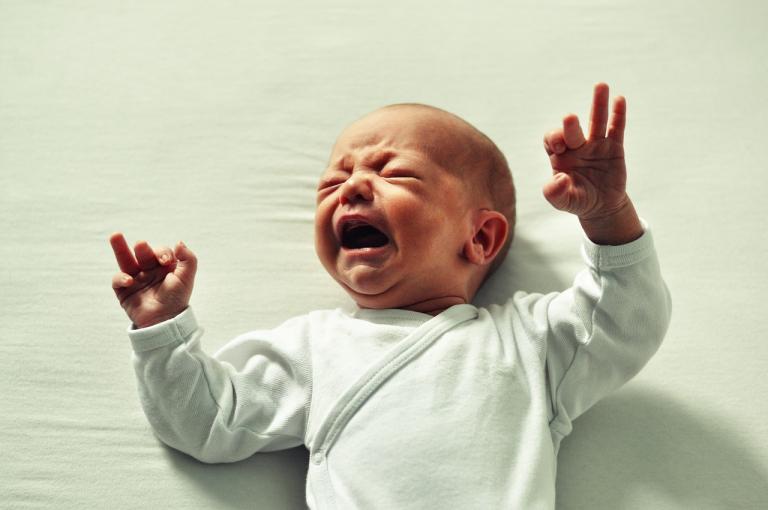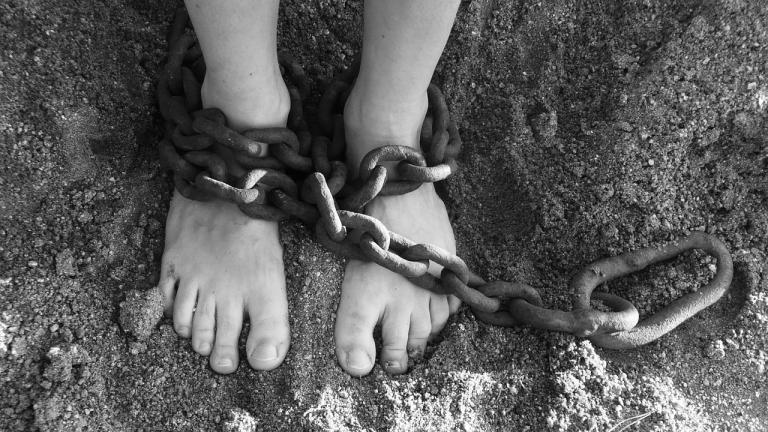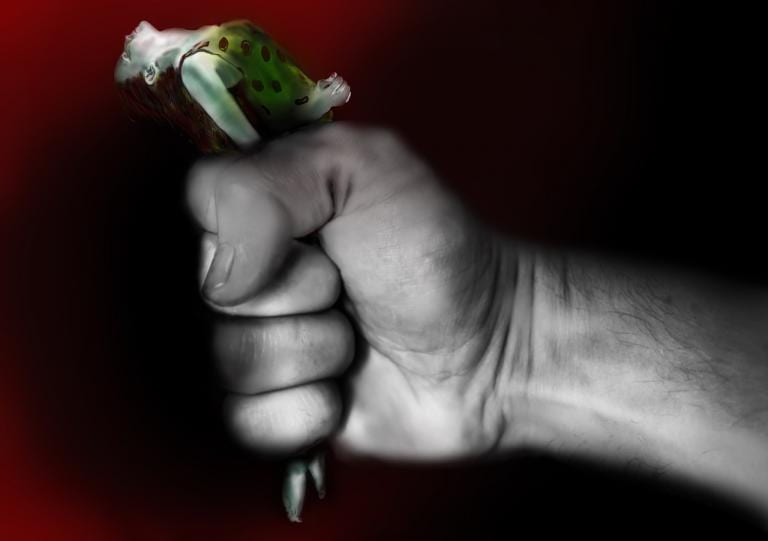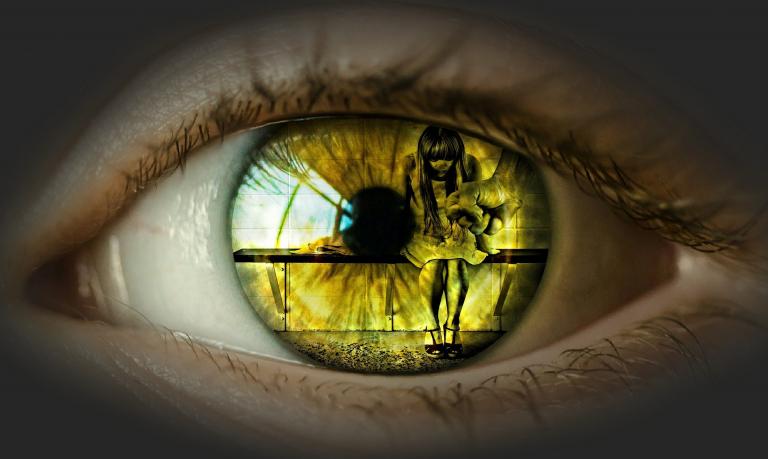Recently, I blogged about the existence of social conditions which make it more difficult for individual couples to practice the Church’s teaching on contraception. I want to expand on that a little more, taking postpartum depression as a particular example of a way in which these social conditions actually manifest in the lives of individual Catholics.
I want to begin with Foucault’s idea that mental illness is basically socially constructed. It’s true, but it’s also easily misunderstood so I want to spend a moment talking about what he means by this before applying it to PPD in particular, and then discussing how that relates to my broader point about NFP.
Foucault does not mean that there is no biological or neurological component to mental illness. Rather, what he means is that certain behaviours, mental traits or emotional states are incompatible with a particular cultural ethos or way of life such that they become antisocial. So, for example, a person who is a celebrated visionary in one social context may be perceived as a demoniac in another. A personality perceived as heroic in Ancient Greece might be considered narcissistic and abusive in contemporary culture.
In some cases, normal human behaviours come to be pathologized or demonized. This often leads to depression, shame, anxiety or other negative emotional states. Basically, people are gaslighted (told that their normal feelings/behaviours/limitations are abnormal), and they interiorize the idea that something is wrong with them if they cannot practice a standard that is actually impossible, or only possible for a small minority of people.
Alright, so let’s take this tool and apply it to postpartum depression in particular.
I’ve had strong, depressive type symptoms following the births of most of my children. My last baby was a notable exception. I think I have a pretty good idea of why: when Malachi was born, I had severe complications that made it impossible for me to get back on my feet, and back to looking after my other children, immediately after giving birth. I had to just stay in bed. I had no choice.
This meant that other people had to step in and take on the work that normally I would have done during that time. It also meant that I experienced far less social isolation – people came to see me, and spent time with me, because they were concerned about my health. I had permission to take time to take care of myself – not just because other people were willing to step in, but also because a woman who has nearly bled to death doesn’t face stigma, either external or interior, if she needs time to recover.
The thing is, many societies historically have given women permission to rest during the final stage of pregnancy, and to recover after giving birth. Some have even mandated such rest. Many of our foremothers would have been shocked and scandalized by an ethos which expects women to return to work as quickly as our society does. And they would have considered it an act of grave cruelty to abandon a woman who has just given birth, leaving her isolated in a house by herself for most of the day and expecting her to carry on with the housework and to care for other small children before she’s even had time to recover.
We know that both lack of sleep and lack of social connection can be major contributing factors in the development of depression… and yet the way our society is organized ensures that the majority of new mothers are going to suffer from these conditions. Paternity leave can be a partial solution, but the reality is that if you’ve just given birth you don’t only suffer from a lack of support from your spouse. You also suffer from a lack of broader societal support.
A lot of spaces in our society basically pathologize the behaviour of newborn infants. Public breastfeeding is increasingly tolerated, but remains sufficiently taboo that many new mothers feel uncomfortable or isolated feeding their babies outside of the home. And in a lot of the venues where social activity takes place, a crying baby is seen as an intolerable impingement on the right of others to socialize in a child-free environment.
Many women are moving into mothering from a professional environment where they are used to discussing adult topics and to being treated as if they have a certain level of expertise. (I suspect that a lot of the insufferable women in the Mommy Wars are basically women who are starved of opportunities to be taken seriously, and who are compensating by trying to “experts” on motherhood.) As soon as you have a baby, most people assume that the only thing you want to talk about is the baby. The fact that maternity and nursing clothes are practically designed to make you look like a domesticated fluff-ball does not help.
Nor does the fact that contemporary society sees a mother, even one with a newborn, as uniquely responsible for her older children. If you’re sitting cradling a three week old baby, people still expect you to chase after your two year old if you go somewhere in public. The sense that there is a communal responsibility for the care of children has been deeply eroded to the point where a mother is often seen as “negligent” if she suffers from the normal physical limitations of having a human body.
The result is that many women choose an isolated home environment where at least they can sit down and nurse a crying infant without suffering dirty looks or caustic comments. The social penalties for going out of the house, even to child-friendly locales like the park, are often so great that exhausted women just can’t afford the stress.
Depression is a natural result of this situation. It’s not a pathological response: it is how human bodies react to being deprived of sleep, social contact, fresh air and adequate rest after strenuous exertion. If you take anybody, male or female, subject them to the kind of physical trauma involved in giving birth and then, immediately after, isolate them and expect them to do significant physical and emotional labour (like childcare and housework), they will probably suffer fatigue, a sense of hopelessness, feelings of being trapped, loss of pleasure in life, sadness, mood swings, bouts of anger and an inability to cope.
The thing is, neither individuals nor couples have it in their power to escape from this situation. The social conditions that place these burdens on women who have just given birth are not the fault either of the mothers themselves nor, for the most part, of the fathers.
Yes, you might be able to gain some relief if the father makes sacrifices to take paternity leave… or you might not because adding financial stress to the equation might actually make things worse. Yes, reaching out for help might make things better. Or it might lead to increased feelings of helplessness and isolation when it turns out that nobody steps up, or that the help on offer is completely inadequate.
The truth is, the culpability for this state of affairs is spread out over millions of individuals. Those who feel entitled to eat out without ever having to hear the sound of a crying infant. Those who don’t think it’s their responsibility to give up their seat for a pregnant woman on the subway. Those who never turn to a struggling mother and say, “Your two old is just too cute. Would it be okay if I play trucks with him while you nurse the baby?” Those who give evil glances to mothers whose kids are crying in the grocery line. Those who publish gross, entitled treatises on how your kids should behave like little angels in Mass. Those who think that maternity leave is politically unimportant, or that profits are more important than women’s health. Those who…
I could extend this list more or less indefinitely, but the point is that when a society fails to adequately support motherhood this creates a situation in which a woman’s freedom to choose to have more children is objectively diminished. If a woman has tried NFP, and found that she is unable to make it work, and she wishes she could have more children, but she can’t because there isn’t enough social support to make it psychologically or financially feasible, then she is not in a position where she is able to make a decision for or against contraception with anything like the kind of freedom necessary to make a choice that blots out charity within the soul.
She might decide to try to be heroically virtuous and persevere with NFP anyway – but heroic virtue is not, and never has been, the cut-off line for mortal sin. Diminished culpability is a real thing, and when we omit it from our moral considerations we become callous, cruel, lacking in the compassion and mercy that characterizes genuine Christian witness.
Image credit: pixabay
















